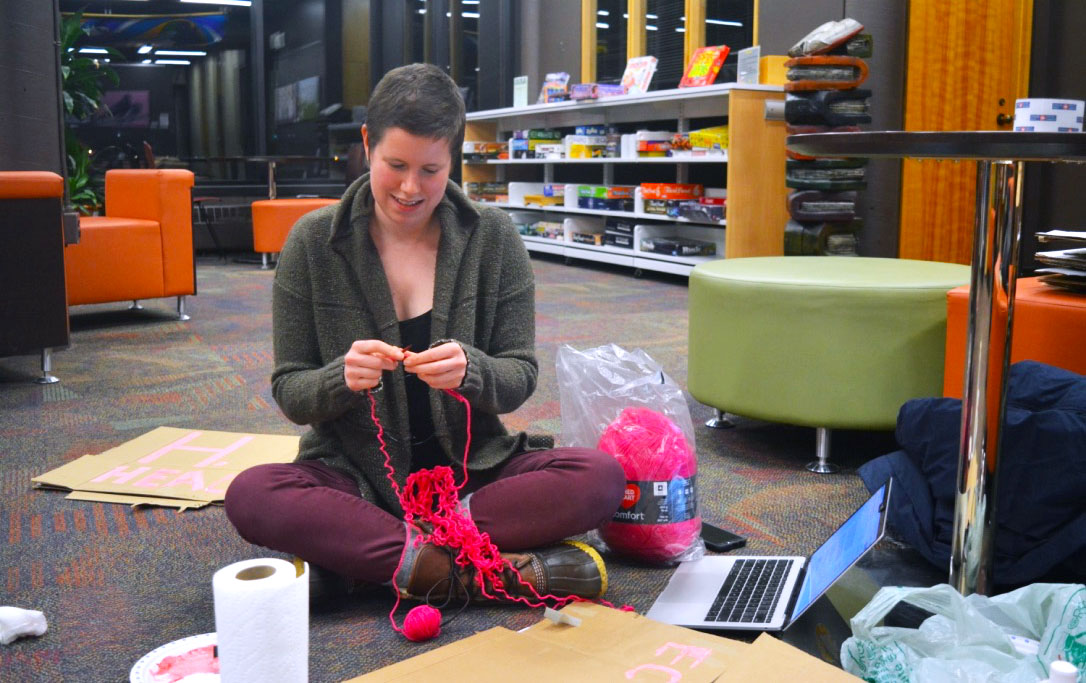

The pussy hat has become a universal symbol for women and feminists alike since the Women’s March that followed the 2016 presidential election in Washington D.C.
In preparation for the 2019 Fredericton Women’s March, people gathered at the Fredericton Public Library on Jan. 9 and 11 to make crafts to promote the movement.
Kylie Bergfalk, a member of the organizing committee for the march this year, helped host the events at the library where people displayed their crafts, including the famous pink pussy hat.
“One of the things that I liked about the pussy hat … was women who couldn’t participate in the marches because of money or health problems were able to participate in this way,” said Bergfalk.
But since the 2016 Women’s March, the pussy hat has stirred up controversy around whether or not it’s a good representation of feminism, since not all minorities have female genitalia. It could make some people who don’t identify as a woman feel alienated.
The Women’s March raised questions about whether all women are represented by the pussy hat, since the focal point of some movements is white, cisgender women, which leaves out LGBTQ+ folk and disregards intersectionality.

On Jan. 12, 2018, Kristen Jordan Shamus wrote in the Detroit Free Press about why more feminists are starting to abandon this symbol.
“The reason: the sentiment that the pink pussy hat excludes and is offensive to transgender women and gender non binary people who don’t have typical female genitalia and to women of color [sic] because their genitals are more likely to be brown than pink,” Shamus wrote.
The criticisms around the pussy hat encourage discussions about minority groups and spark conversation.
“The question is what is useful in the pussy hats and what is alienating, and that is a really important conversation to have,” said Bergfalk.
“The most important thing is that in the conversation we are listening to each other, so the pussy hats have become an opportunity to build a bridge between the women that the women’s movement typically [favour] and those who have been excluded.”
In light of the upcoming Women’s March in Fredericton, the organizing committee is working hard to advance representation of all women, not just cisgender white women.
They are adopting the H.E.R.S. framework by Women’s March Global to promote unity, partnerships and action. H.E.R.S. stands for health, economic stability, representation and safety, the focus for this year’s march.
Bergfalk hopes the pussy hat will get the conversation started around the issues represented by the H.E.R.S. framework.
A panel of speakers, advocates and activists from Fredericton and Moncton will be speaking after the march at the Fredericton Public Library to inform the public and continue the conversation on women’s rights.
The Fredericton Women’s March takes place on Jan. 19 at City Hall from 1 to 2 p.m.
